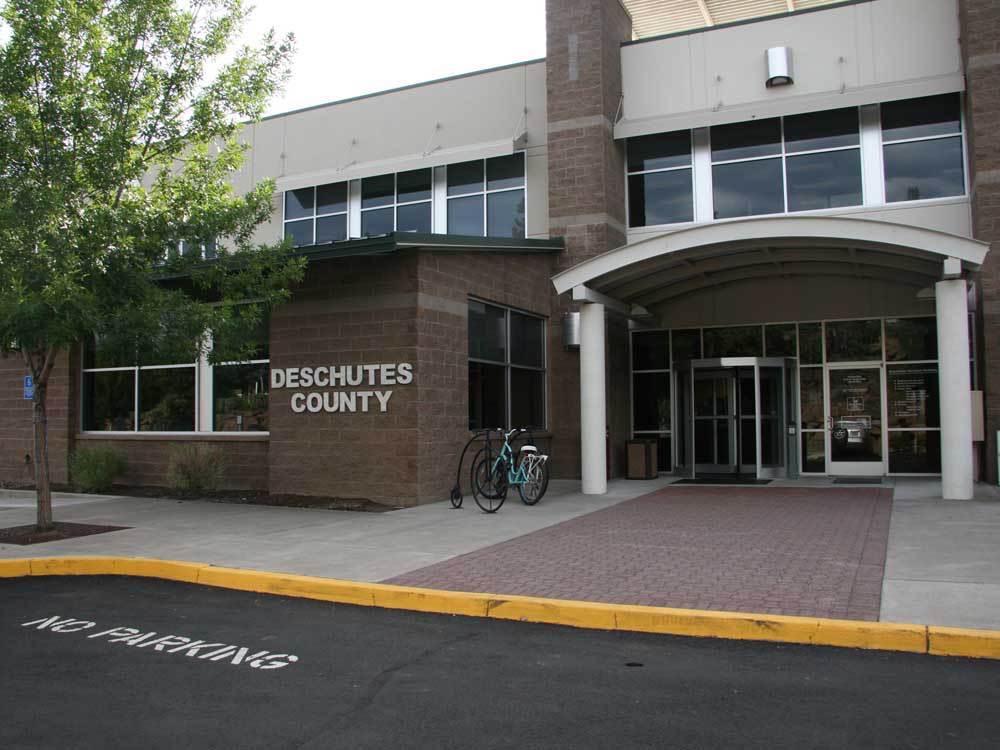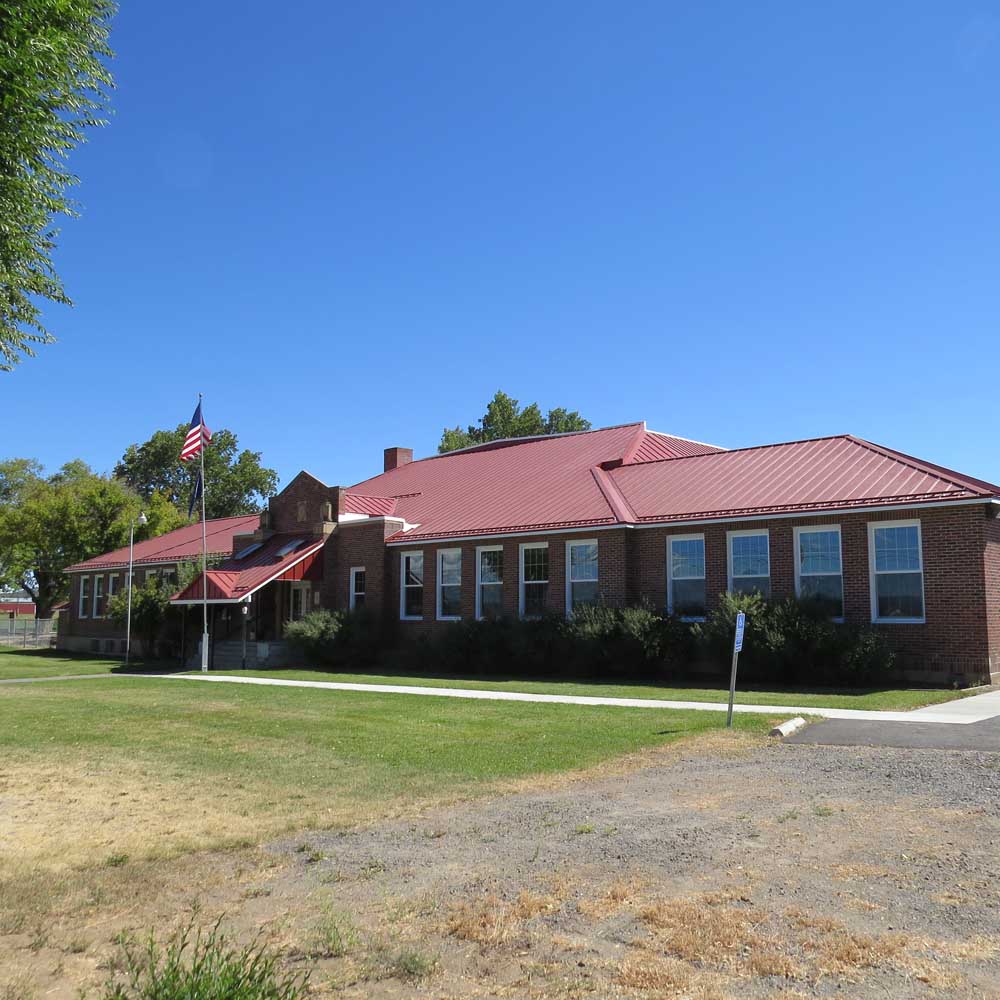Adair, DeBone keep control over Deschutes County districting process
Published 5:45 am Tuesday, May 27, 2025

- The Deschutes County administration building.
Decisions of the Deschutes County Commission commonly end in a 2-1 vote, with Commissioner Phil Chang objecting to the positions of his Republican counterparts.
That routine outcome is sure to change in 2026, when the board expands to five members under a ballot measure approved by Deschutes County voters last fall.
At least until then, Republicans have control of the county commission — and part of the process by which future commissioners will be elected.
Trending
They outvoted Chang once again earlier this month, when the commission was deciding who would get a say in appointing members of an independent committee charged with carving up Deschutes County into political districts for future elections.
Commissioners were unanimous in their agreement that the county should create districts, meaning each member of the new five member board will be elected only by voters in specific geographic areas. Commissioners also agreed to appoint a committee tasked with creating the proposed map, rather than drawing it themselves.
But the board has not agreed on any part of the process since then.
Commissioners will ultimately have to approve the district maps that will be sent to voters in a 2026 ballot measure.
Commissioners hold appointment power
On May 5, Commissioners Tony DeBone and Patti Adair voted to keep the power of committee appointments in the hands of the county commissioners, giving themselves two appointments each and three to Chang.
Trending
Chang’s alternative suggestion for a 15-member committee would have distributed appointments among county commissioners, city governments and state legislators based on how many people they represent. That would have placed seven appointments solidly in the hands of Democrats from Bend, plus two more for Deschutes County’s next largest city, Redmond, where the politics are purple.
DeBone and Adair, who live in La Pine and Sisters, said earlier this month they were likely to appoint committee members from their respective areas of the county.
“I would definitely want one of my appointments to be from the country,” Adair said. “I know everyone’s going to take this responsibility incredibly seriously, because it’s going to be impactful for the next 100 years, 200 years.”
The county’s districts will be redrawn once every 10 years, on the same schedule as other jurisdictions.
But Chang said he doubted the committee could be truly independent if commissioners are given too much control over who is serving on it.
“It would be a huge waste of people’s time and money for us to walk a partisan, divisive, loaded committee through this process and come up with a map that isn’t going to pass muster with the voters,” he said.
Though he supports districting, Chang has said the board should wait until after two more commissioners join to initiate the process, arguing the process would be better suited in the hands of the larger body voters asked for.
The ballot measure was widely endorsed by Democrats, who argued Deschutes County was overdue for a greater level of representation. Opposition came from the county’s Republican party, including Adair and DeBone, who declined to put the issue on the ballot themselves, prompting a citizens’ initiative that gathered thousands of signatures. Other Republican leadership said the ballot measure was a tactic by Democrats to take control of the commission in 2026 as population growth pushes county politics leftward.
There are about 164,000 registered voters in Deschutes County, including about 49,000 Democrats, 45,000 Republicans and 56,000 who are not affiliated with a political party.
Drawing the lines
The process by which the boundaries of political districts are drawn to favor one political party is known as gerrymandering. When competition is eliminated from a political race, it removes voters from the equation, said Samuel Wang, director of the Princeton Gerrymandering Project, a group of academics who use data to evaluate redistricting efforts across the country.
Oregon law sets standards of how districts are drawn, including that they must be of roughly equal population size.
About 47% of Deschutes County’s registered voters live in Bend, and many vote Democrat. Because left-leaning voters are concentrated, splitting Bend into two districts would form two near-guaranteed seats for Democrats, and the rest of the county could be arranged to form three near-guaranteed seats for Republicans, Wang said.
“It would be better for at least one district to be competitive. More would be even better,” he said.
One way to safeguard against a one-sided district map would be to require a supermajority approval in the districting committee, meaning at least one Democrat-appointed member would have to be on board, Wang said. Another safeguard is to facilitate public input on the process.
DeBone said he wasn’t worried about the proposed maps being biased because the public will have a chance to weigh in on the district drawing process.
“It’s going to be done in the daylight, so if it doesn’t look like something’s going to be flowing in a reasonable, fair and equitable fashion, it’ll be obvious,” he said earlier this month.
‘All sides of the story’
During a meeting last week, Chang made another attempt to shape the districting committee, suggesting the board should set parameters to make sure members are representative of different geographic areas and sides of the political spectrum.
He said he would be inclined to pick people who are independent or moderate politically, “but if other appointments are going to be strongly stacked towards a certain party affiliation, then frankly I would want to try to counterbalance that a little bit,” he said.
He added: “I don’t feel that this group of three of us is going to be trying to create that breadth and representativeness without hearing statements to that effect.”
DeBone and Adair declined to go into that level of detail.
“I’m going to select two individuals and bring them to the table. That’s my plan,” DeBone said. They’re going to be electors of Deschutes County, they’re going to be engaged citizens. And they’re going to come to the table with a willingness to do the people’s work.”
“We’re all going to choose someone we feel is incredibly fair and wants to do a great job because this is for the citizens,” Adair added. “I feel that anyone I appoint I want to be really clear with them that they’ve got to think about all sides of the story.”
Commissioners said they have not officially chosen committee members but plan to do so by next month. That would put the county on track to place a ballot measure on the May 2026 ballot. Adair, DeBone and the two new seats will be up for election in November 2026.
If approved, districts would not come into effect until the 2028 election, when the two new seats and Chang would be up for reelection.
Reporter: cfranke@bendbulletin.com, 541-617-7854









